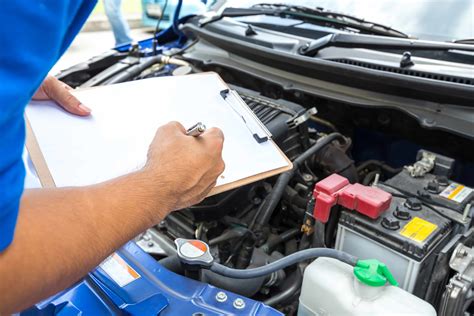Get the Best Value for Your Car Inspection
Regular car inspections are crucial for maintaining your vehicle's safety and longevity, preventing costly repairs down the line. However, navigating the world of car inspections can be confusing, with varying prices and service levels. This comprehensive guide will help you get the best value for your money when it comes to car inspections.
What is a Car Inspection and Why is it Important?
A car inspection, also known as a vehicle safety inspection or MOT (in some countries), is a systematic examination of your vehicle's key components to ensure they meet safety and emission standards. This typically includes checking brakes, lights, tires, steering, exhaust system, and more. The importance of regular inspections can't be overstated:
- Safety: Inspections identify potential safety hazards before they lead to accidents, protecting you, your passengers, and other drivers on the road.
- Preventative Maintenance: Early detection of minor issues prevents them from escalating into major, and expensive, repairs.
- Legal Compliance: Many jurisdictions require periodic vehicle inspections for legal operation on public roads. Failing an inspection can lead to fines and the inability to drive your car legally.
- Resale Value: A well-maintained vehicle with a clean inspection history is more attractive to potential buyers, increasing its resale value.
How Much Should a Car Inspection Cost?
The cost of a car inspection varies significantly based on location, the type of inspection required (e.g., basic safety check versus a more comprehensive pre-purchase inspection), and the reputation of the inspection facility. While it's impossible to give a precise figure, research local prices beforehand to avoid unexpectedly high costs. Don't solely focus on the lowest price; consider the reputation and experience of the mechanic or inspection center.
What Factors Influence the Cost?
- Location: Urban areas tend to have higher labor costs, reflecting in higher inspection fees.
- Type of Inspection: Basic safety inspections are typically cheaper than more in-depth pre-purchase inspections or those including emissions testing.
- Vehicle Type: The complexity of the vehicle (e.g., a classic car versus a modern sedan) can influence the inspection time and cost.
- Reputation and Experience: Established and reputable garages might charge slightly more but often offer greater expertise and thoroughness.
How to Find a Reliable and Affordable Car Inspection Service?
Finding a reliable and affordable car inspection service requires careful research. Here are some key steps:
- Ask for Recommendations: Seek recommendations from friends, family, and colleagues. Word-of-mouth referrals can be invaluable.
- Online Reviews: Check online reviews on platforms like Google, Yelp, and other relevant review sites. Look for consistent positive feedback and address any negative reviews carefully.
- Check Licensing and Certifications: Ensure the inspection facility is properly licensed and certified to perform vehicle inspections in your area. This provides an extra layer of assurance.
- Compare Prices and Services: Get quotes from multiple inspection centers, comparing both the price and the scope of services included. Don't hesitate to ask questions about the inspection process.
- Transparency and Communication: A reputable facility will be transparent about the inspection process, clearly explaining any issues found and providing options for repair.
What Questions Should I Ask Before Getting My Car Inspected?
Before committing to a car inspection, ask these crucial questions:
What is included in your inspection?
This helps ensure you're getting a comprehensive inspection and avoids any surprises. Ask for a detailed list of the components checked.
How long will the inspection take?
Knowing the estimated time allows you to plan your schedule accordingly.
What happens if my car fails the inspection?
Understand the process for addressing any issues identified during the inspection, including the cost of repairs and potential retesting.
Do you offer repair services?
While not essential, some drivers prefer to have repair services available at the same location for convenience.
What is your payment policy?
Clarify the payment options and any associated fees.
Preparing Your Car for Inspection
Proper preparation can help ensure a smoother inspection process. Consider these steps:
- Clean Your Car: A clean car allows for easier visual inspection of key components.
- Check Fluids: Ensure all essential fluids (oil, coolant, etc.) are at appropriate levels.
- Gather Documentation: Have your vehicle registration and insurance information readily available.
By following these tips, you can ensure you receive a thorough and cost-effective car inspection, keeping your vehicle safe and roadworthy for years to come. Remember, a well-maintained car is a safer car, and a proactive approach to vehicle maintenance can save you money and headaches in the long run.

